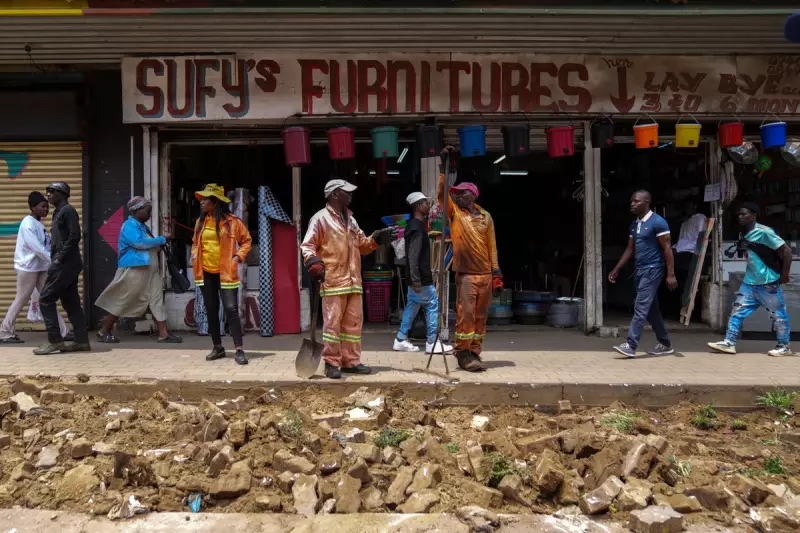
South African authorities are mounting a significant security operation, deploying thousands of additional police officers as Johannesburg prepares to host the Group of 20 world leaders summit this weekend amidst expectations of major protests.
Major Security Operation Underway
South Africa has mobilised an extra 3,500 police officers and placed army units on standby through its National Joint Operational and Intelligence Structure. The security preparations were showcased on Wednesday with a parade featuring helicopters, K-9 dog units, and motorcycle officers in a clear demonstration of force ahead of the high-profile event.
Deputy national commissioner for policing, Lieutenant General Tebello Mosikili, informed reporters on Tuesday that authorities anticipate protests in Johannesburg and other major cities. "We will allow that right to be exercised," she stated, "but within the proper directives and proper confines of the law."
Police have designated specific protest areas near the summit venue, an exhibition centre adjacent to the country's largest football stadium. Airports Company South Africa has established "speakers' corners" within airports where protesters will be "kindly" escorted by security if demonstrations occur during world leaders' arrivals.
Diverse Protest Groups Gather Momentum
The two-day summit commencing on Saturday is expected to attract leaders and top diplomats from more than 40 countries alongside global institutions including the United Nations, World Bank, International Monetary Fund, and World Trade Organization.
Planned demonstrations represent a broad spectrum of concerns:
- Anti-capitalist and climate activism groups
- Women's rights campaigners and anti-migrant organisations
- Groups highlighting South Africa's domestic issues of poverty and inequality
Controversy has already emerged surrounding billboards erected by Solidarity, a trade union representing members of South Africa's Afrikaner white minority. The signs declaring "Welcome to the most RACE-REGULATED country in the world" reference the country's affirmative action laws. One billboard was removed by city authorities, prompting the union to threaten legal action.
This diplomatic tension extends to the highest levels, with US President Donald Trump boycotting the summit over claims that South Africa's Black-led government pursues racist, anti-white policies. These allegations have been widely dismissed as baseless, but the American boycott threatens to undermine Africa's inaugural G20 summit.
Other protest movements are seizing the international spotlight. The Women for Change advocacy group has called for a national shutdown on Friday, urging women to boycott work to protest South Africa's alarming rates of violence against women and femicide. "Because until South Africa stops burying a woman every 2.5 hours," the group declared, "the G20 cannot speak of growth and progress."
Meanwhile, a South African anti-immigration group plans to demonstrate against the country's 31% unemployment rate, among the highest globally. A coalition protesting climate change and wealth inequality has organised an alternative summit in another part of Johannesburg, describing the official G20 gathering as "for the rich."
Infrastructure Cleanup and Public Skepticism
Johannesburg authorities have initiated a substantial cleanup and repair operation ahead of the summit, addressing the broken infrastructure that plagues the city. In a symbolic gesture, South African President Cyril Ramaphosa donned green overalls last week to participate in cleanup efforts in Soweto, located just miles from the summit location.
However, the multi-million-dollar operation for a two-day political meeting has been met with cynicism by many Johannesburg residents accustomed to malfunctioning streetlights, potholed roads, and deteriorating services causing frequent water and electricity disruptions.
Johannesburg resident Lerato Lelusa expressed widespread skepticism: "Us hosting this G20, I don't really think it's going to be beneficial for South Africans, for the ordinary South Africans. It's just a way to waste money, if I can say."





